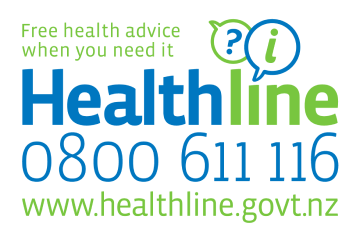Transcript - Parenting Your Baby From 6 Weeks to 6 Months
Transcript - Parenting Your Baby From 6 Weeks to 6 Months
Video transcript for parenting your baby from 6 weeks to 6 months.
Title: Your Child: Six Weeks to Six Months. Episode 07 of 15.
Title: Emily & Daniel’s Whānau
[Shots of Emily and Daniel’s baby.]
Title: Sylvia, 4 months old
Emily (voice-over): It's been wonderful getting to know Sylvia. She's only four months but I feel like she's come a long way since she was a newborn.
[Interview with Emily.]
Emily: Hi, I'm Emily. I live here in Wadestown, Wellington. I'm married to Daniel and I have two children – Leonard, who's two, and Sylvia, who's four months old.
[Shots of Emily’s baby looking around and rolling on the floor.]
Emily (voice-over): In the last couple of months, Sylvia has changed. She's definitely become more perceptive and aware of what's happening around her. She's also a lot more mobile, rolling around on the floor. She can hold her head up and is pretty strong now. It's been lovely to watch both Leonard's relationship and Sylvia's relationship with Daniel, their dad, develop. Recently she started laughing, and of course the first person she laughs with is Daniel. It's lovely to watch. He really enjoys her responding to him more now that she's getting older.
[Interview with Erika.]
Title: Erika Ware, Well Child Tamariki Ora Nurse
Erika: Kia ora. I'm Erika and I'm a Well Child (Tamariki Ora) Nurse. One thing that we like to talk to parents about at this time and stage is teeth and teething.
[Shot of Emily’s baby chewing on a toy.]
Erika (voice-over): Babies can start teething from three months, going on to about twelve months, but the most common time is around that five month mark.
[Interview with Emily.]
Emily: Sylvia has started teething. She's become a lot more dribbly and wants to chew on anything she can get her hands on. She has two little hard bumps under her gum that you can feel. They come up and get a bit sharper, then they go back down. It's a bit of a process but she's definitely going through that and handling it quite well.
[Interview with Erika.]
Erika: Baby teeth are very important because they hold the spaces for the adult teeth to come through nice and straight. Hygiene has a really important role here. We can clean baby's teeth with a soft toothbrush as soon as the teeth come through with a teeny little bit of family fluoride toothpaste.
[Shots of Emily breastfeeding her baby.]
Emily (voice-over): With breastfeeding and Sylvia teething, I'm not worried that it's going to hurt. I do know from experience with Leonard that it's a bit uncomfortable for a while when their teeth do come through, because their mouth changes and the shape of their mouth changes, so they need to learn how to breastfeed a little bit differently, and allow for those teeth that are in the way.
[Interview with Erika.]
Erika: Breastfeeding is the best start we can give our babies in life. It's free. It's accessible. It's the perfect temperature and it has everything that our babies need.
[Interview with Emily.]
Emily: I'm breastfeeding Sylvia because I know it's very important for her health to be breastfed, and I want to provide her with the best start in life that I possibly can. It's also super-convenient, and wherever I go, my milk supply comes with me. Sylvia can be fed anywhere and everywhere.
[Interview with Erika.]
Erika: We recommend that mothers breastfeed babies to at least six months, or longer.
[Emily carries her baby to the baby bed.]
Emily (voice-over): Sylvia is in her own bed in our bedroom. That works out really well because we can hear her though the night and can get up quickly. I also know that she's got her own space where she's safe. We're not going to roll over on her in our sleep and we don't have to worry about her when we're sleeping. I think we get a better sleep for it.
[Interview with Erika.]
Erika: Some of the key things that we can think about now is their feeding patterns, also their sleeping patterns. Getting to know them, about their cries, and adjusting to having new baby in the family.
[Interview with Emily.]
Emily: One thing I've learnt with babies, especially young babies Sylvia's age, is that everything is a phase and will pass – so the good and the bad, but especially when there are moments and you're worried or you're doubting yourself, or they're sleeping terribly – it's all a phase and it will pass. You will get through it.
Title: Our thanks to the families and health workers who appeared in this video for the Ministry of Health.
This page last reviewed 09 September 2024.
Do you have any feedback for KidsHealth?
If you have any feedback about the KidsHealth website, or have a suggestion for new content, please get in touch with us.
Email us now